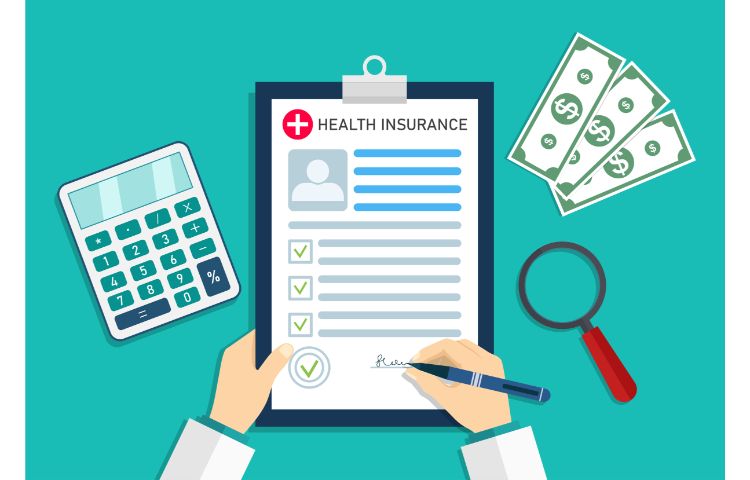What Are Pre-Medical Tests in Health Insurance?
What Are Pre-Medical Tests in Health Insurance?

The rising cost of quality healthcare facilities and the chances of us falling sick due to poor lifestyle choices have made health insurance a non-negotiable entity. However, not everyone is at the same level of health risk, and pre-policy medical tests are becoming popular as a way to assess someone’s insurance needs. These check-ups and medical investigations done prior to the health plan determine the policy applicant’s present medical fitness. On the basis of the results and the presence of any pre-existing health conditions, the insurer will draw up the list of policy benefits and the premium for a person. Let’s learn more about these tests and why they are helpful.
What are the Pre-Medical Examinations?
Pre-medical examinations are a set of medical tests mandated by most insurance providers before issuing a policy.
These tests help the health insurance provider know if you are eligible for the policy, your health condition if you are a high-risk applicant and subsequently decide the premium. If any pre-existing conditions are detected in the pre-medical tests, the insurance provider will offer appropriate coverage for the individual. The number and type of medical tests are based on the applicant's age and policy coverage. Usually, the pre-medical examinations are mandatory if the applicant is above 40 years.
Who pays for the pre-medical tests?
As per the rules of IRDAI, the insurance company must pay at least 50% of the test cost, while the applicant must bear the remaining expense. However, to reduce the burden on the applicants, most insurance companies offer the entire cost of the tests. In cases where the policyholder pays for the medical tests, the amount is later reimbursed after the policy is approved.
Benefits of Undergoing Pre-Medical Examination
1. Adequate coverage:
When you buy a healthcare plan, the sum insured should be adequate to meet the medical expenses. If you are under insured, you may have to pay from your pocket. To avoid such a situation, it is better to undergo pre-medical tests,which will give a clear picture of your health status.You can choose the right coverage and stay financially protected based on your health condition.
2. Risk of claim rejection is less:
If the insurer finds out that your claim request is for a pre-existing medical condition that was not disclosed, your claim can get rejected. But if you undergo pre-medical tests, your health condition will be documented; hence the chances of claim rejection are less.
3. Coverage for pre-existing ailments:
There is a waiting period to cover pre-existing diseases, which means any claims made during this period will get rejected. However, if your illness is diagnosed during the pre-policy tests, the insurance provider may waive the waiting period with an additional premium, and you will be covered from the beginning. Some companies may offer certain exclusions on the waiting period based on your health condition.
4. Discounts in premium:
If your pre-medical test reports show that you are healthy with no pre-existing medical conditions, the insurer will offer discounts on the premium because your chances of raising claims are less. For instance, if a test is done to check the level of nicotine in your body and no traces are found, you will get a discount.
5. Helps diagnose ailments in advance:
The pre-medical examinations can help diagnose any ailments that you may not be aware of. This will help in getting proper treatment at the right time.
Common Pre-Medical Tests
The type of tests is based on the age of the applicant and the coverage that the person is looking for. However, some of the common pre-medical tests conducted are:
• Blood sugar
• Complete Blood Count (CBC)
• ECG
• Lipid profile
• Thyroid
• Blood pressure
• Blood serum test
• Urine analysis
What happens after the pre-medical examinations are done?
Based on the reports of your pre-medical examinations, the insurance provider will decide whether to accept or reject your application. If the reports show some illness or medical condition, the insurance company can choose any of the following options.
First, if the illness is risky and requires frequent medical attention, the insurer can choose to reject the proposal. Second, the insurer can issue the policy but at a higher premium to meet the expenses incurred due to the detected illness. The high premium will depend on the policyholder’s age and the severity of the disease. Third, the insurer may offer coverage but with certain exclusions.
Conclusion
All Mediclaim policies may not require pre-medical examinations, but it is advisable to undergo these medical tests because of the benefits mentioned above. While buying a health insurance policy, do thorough research on the policies available and choose the best health insurance plans that will keep you and your family financially secure during emergencies. Senior citizen health insurance is a must if your parents are above 60 years of age;these plans are designed especially for senior citizens and keep them financially secure if there is a medical emergency.
Disclaimer: The above information is for illustrative purpose only. For more details, please refer to policy wordings and prospectus before concluding the sales.
RELATED ARTICLES
What is Radiology? What’s Its Role in Healthcare?
Benefits of Preventive Healthcare to Employees for Saving Future Costs
Are Pre-Policy Medical Check-Up and Tests under Health Insurance Coverage Important?
Types Of Cholesterol Tests – What You Should Know?
How To Practice AnulomVilom Pranayama And Its Benefits










 Health Insurance
Health Insurance  Travel Insurance
Travel Insurance  Car Insurance
Car Insurance  Cyber Insurance
Cyber Insurance  Critical Illness Insurance
Critical Illness Insurance
 Pet Insurance
Pet Insurance
 Bike/Two Wheeler Insurance
Bike/Two Wheeler Insurance  Home Insurance
Home Insurance  Third Party Vehicle Ins.
Third Party Vehicle Ins.  Tractor Insurance
Tractor Insurance  Goods Carrying Vehicle Ins.
Goods Carrying Vehicle Ins.  Passenger Carrying Vehicle Ins.
Passenger Carrying Vehicle Ins.  Compulsory Personal Accident Insurance
Compulsory Personal Accident Insurance  Travel Insurance
Travel Insurance  Rural
Rural 











